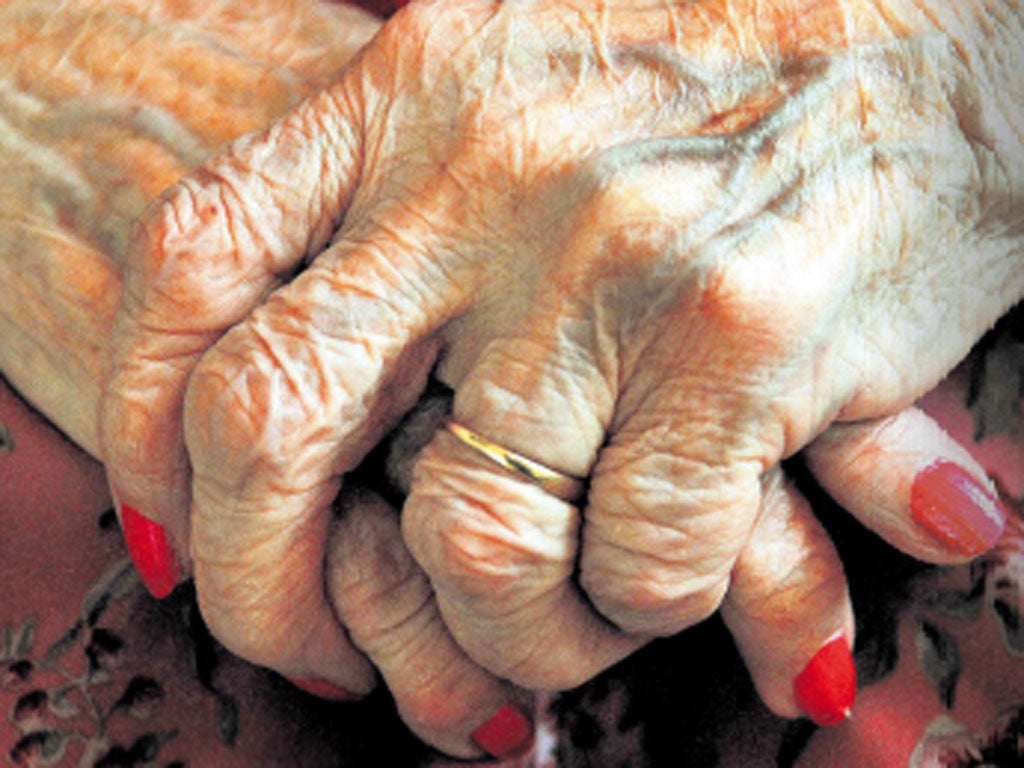NHS chief: Hospitals are bad for old people's health

Hospitals are "very bad places" to care for frail, elderly patients and new ways must be found to treat them in the community, the new independent head of the NHS has warned.
In his first newspaper interview since being appointed head of the NHS Commissioning Board, Sir David Nicholson told The Independent that a revolution was needed in the way the health service cared for Britain's ageing population.
Sir David likened the current plight of elderly patients in hospitals to the "national scandals" resulting from the treatment of mental health patients in large asylums in the 1960s and 1970s, and committed the NHS to massive expansion of community care.
"If you think about the average general hospital now, something like 40 per cent of the patients will have some form of dementia," he said. "They are very bad places for old, frail people. We need to find alternatives."
Plans to expand community treatment are likely to lead to the closure of some hospital facilities and the concentration of services in a smaller number of large, highly specialised centres.
Sir David also pledged that the new independent Commissioning Board – set up by the former Health Secretary Andrew Lansley as part of his controversial health reforms – would be prepared to challenge ministers over NHS budgets.
In future, he said, the public would know how much the NHS believed it needed to spend to keep waiting lists down and improve life expectancy.
"We will be saying, 'If that's the amount of money which is available, these are the sorts of things we will be able to deliver and these are the sorts of things that we can't,'" he said. "That's a big change." He added: "We will be saying, 'If you do this, this is what we think the implications will be."
In April the Commissioning Board will take over responsibility for all NHS services in England from the Department of Health. It will be accountable to Parliament but not to Jeremy Hunt, the Health Secretary.
Sir David said one of his main priorities was to bring about a fundamental change in caring for the elderly – particularly those patients with dementia. This would involve spending money to keep them out of hospital as well as transferring treatments for common conditions into the community.
"The nature of our patients is changing – and changing rapidly," he said. "You are getting a larger and larger group of frail, elderly patients who are confused." Sir David's warning comes after a series of national scandals over the treatment of elderly patients in hospitals, including Stafford Hospital where between 400 and 1,200 more patients died than would be expected, due to substandard care.
"I would compare it with where we got to with the big asylums. If you remember what happened in the 1960s and 1970s, there was a whole series of national scandals about care of mentally ill patients," he said. "The response was not just to say that the nurses who looked after these patients needed to be more caring but actually there was something about the way we treated these patients and the model of care that needed to change."
Sir David said preventing falls, managing long-term conditions and new community-based treatment centres for elderly patients would be key to the new type of care. Last night Sir David's stance was backed by both the British Medical Association and the NHS Confederation, which represents hospital managers.
Dr Paul Flynn, chairman of the BMA's Consultants Committee, said: "Sir David Nicholson is right to highlight this as a major issue for the NHS. Hospitals generally do a very good job of providing acute care to older patients – scheduled surgery for example – but standards over the longer term are often not high enough."
Mike Farrar, head of the NHS Confederation, added: "We estimate that 30 per cent of patients in hospital don't need to be there.
"The challenge is how to improve community care within existing tight budgets."
Join our commenting forum
Join thought-provoking conversations, follow other Independent readers and see their replies
Comments